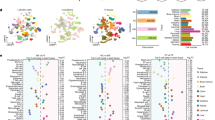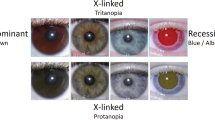Abstract
IN his British Association address on “The General Nature of the Gene Concept”1, Prof. R. Ruggles Gates states that “the conception of the unit character was given up many years ago”. It is hard to let this fertile conception go without a word to be said for it, even though it may be ineffectual. If the conception of the unit character is not wholly true in its original connotation, it cannot be wholly false since man himself has been spoken of as a “rational animal”, denoting an individual unit of the highest degree of complexity. The cuticular bristles of arthropods are structures of their own kind, that is to say, they are homologous, whether transformed into tactile, olfactory, natatory setæ, supporting spines or prehensile hooks. They may be regarded as units of the first order, although they possess such different potentialities, to which may be added the qualities of position, colour and size.
This is a preview of subscription content, access via your institution
Access options
Subscribe to this journal
Receive 51 print issues and online access
$199.00 per year
only $3.90 per issue
Buy this article
- Purchase on Springer Link
- Instant access to full article PDF
Prices may be subject to local taxes which are calculated during checkout
Similar content being viewed by others
References
NATURE, 132, 768, Nov. 18, 1933.
Author information
Authors and Affiliations
Rights and permissions
About this article
Cite this article
WILLEY, A. The Unit Character in Genetics. Nature 133, 137–138 (1934). https://doi.org/10.1038/133137b0
Issue Date:
DOI: https://doi.org/10.1038/133137b0
This article is cited by
-
Activity of Crystalline Preparations of Vitamin B1
Nature (1934)
Comments
By submitting a comment you agree to abide by our Terms and Community Guidelines. If you find something abusive or that does not comply with our terms or guidelines please flag it as inappropriate.



